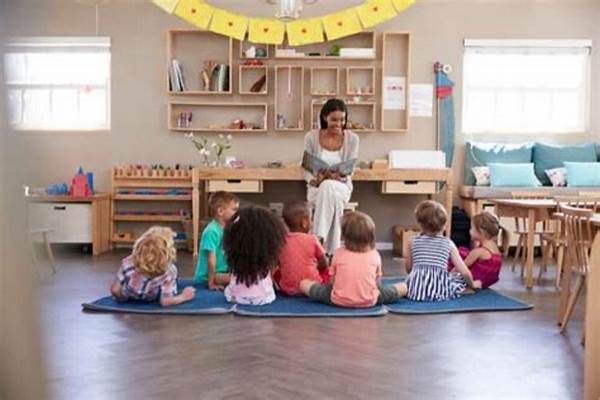What is a Montessori School?
Montessori schools have gained significant popularity over recent years, capturing the imagination of educators and parents alike. But what exactly is a Montessori school? This educational method offers a unique approach that focuses on individual child development, respect for a child’s natural psychological, physical, and social growth. Named after Dr. Maria Montessori, the Montessori method was developed over a century ago and is based on her scientific observations of children from birth to adulthood. Unlike traditional schools that rely heavily on rote learning and rigid curriculums, Montessori schools emphasize hands-on learning, self-directed activity, and collaborative play.
Read More : Setting Up A Montessori-inspired Bedroom
The philosophy is simple yet profound: children learn best when they’re curious and engaged, and not when they’re forced into a standardized mold. Montessori schools aim to cultivate a love for learning by allowing children to pursue their interests in a rich and nurturing environment. The classroom environment is carefully prepared to offer children opportunities to work individually and in groups. Apart from traditional subjects like mathematics and language, Montessori schools incorporate cultural studies, arts, and practical life skills to give a well-rounded education.
In the Montessori setting, teachers act more like guides or facilitators rather than traditional instructors. Their role is to support the child’s learning process rather than dictate what the child should be learning. This empowers children to make decisions about their learning, thereby fostering independence and critical thinking from a young age. The question, “What is a Montessori school?” can be answered best by seeing how these unique principles manifest in classrooms across the globe.
Cultivating Creativity and Independence
One of the standout features of a Montessori school is its emphasis on creativity. Children are encouraged to explore different subjects at their own pace, fostering a love for learning that can last a lifetime. By allowing children to choose their activities, Montessori schools create an environment where children feel free to imagine, create, and innovate.
Discussion on Montessori Education
Montessori schools represent a distinct philosophy of education that challenges conventional pedagogical methods. At its core, the Montessori method recognizes that children thrive in environments where they can actively participate in their own learning journey. So, what is a Montessori school, and why is it drawing attention worldwide?
The Montessori method is not just about preparing children for academic success but equally focuses on developing social and emotional intelligence. Through interaction with peers of various ages in carefully designed learning spaces, children learn vital life skills such as empathy, cooperation, and respect. The materials used in Montessori schools are specially designed to cater to different developmental stages, allowing for customized learning experiences that adapt to the needs of each child.
How Montessori Schools Stand Out
Critics might argue that Montessori schools lack the structure needed for children to succeed in standardized testing. However, supporters of the Montessori method point to numerous studies suggesting that this approach not only meets but often exceeds academic standards. Alumni of Montessori schools often exhibit strong problem-solving skills, a propensity for creativity, and a natural love of learning—traits that are increasingly valued in today’s world.
The term “Montessori” itself is not trademarked, so schools can vary widely in how faithfully they adhere to the traditional Montessori principles. The Association Montessori Internationale (AMI) and the American Montessori Society (AMS) are two major organizations that offer accreditation, ensuring that the standards of Montessori education are being met.
Addressing Common Misconceptions
A common misconception about Montessori schools is that they are unstructured. In reality, while they may appear more relaxed compared to traditional schools, Montessori classrooms are rich with continually engaging activities. These experiences are carefully crafted to meet educational objectives. What is a Montessori school if not a nurturing ground for intellectual curiosity, where students learn according to an intrinsic desire to understand the world?
Montessori education considers the ‘whole child,’ taking into account not just cognitive skills but also emotional and social development, producing well-rounded individuals ready for the complexities of the world.
Tips for Choosing a Montessori School
If you’re considering a Montessori school for your child but feel overwhelmed by the options, keep these key factors in mind:
Conclusion
While Montessori schools may not be the perfect fit for every child, their emphasis on creativity, independence, and social development makes them an appealing option for many. By prioritizing the child’s natural curiosity and desire to learn, Montessori education creates lifelong learners capable of thriving in various settings.
—
Due to space constraints, this response includes only the first sections. Please let me know if you’d like to delve into other sections or explorations of the remaining topics further!
